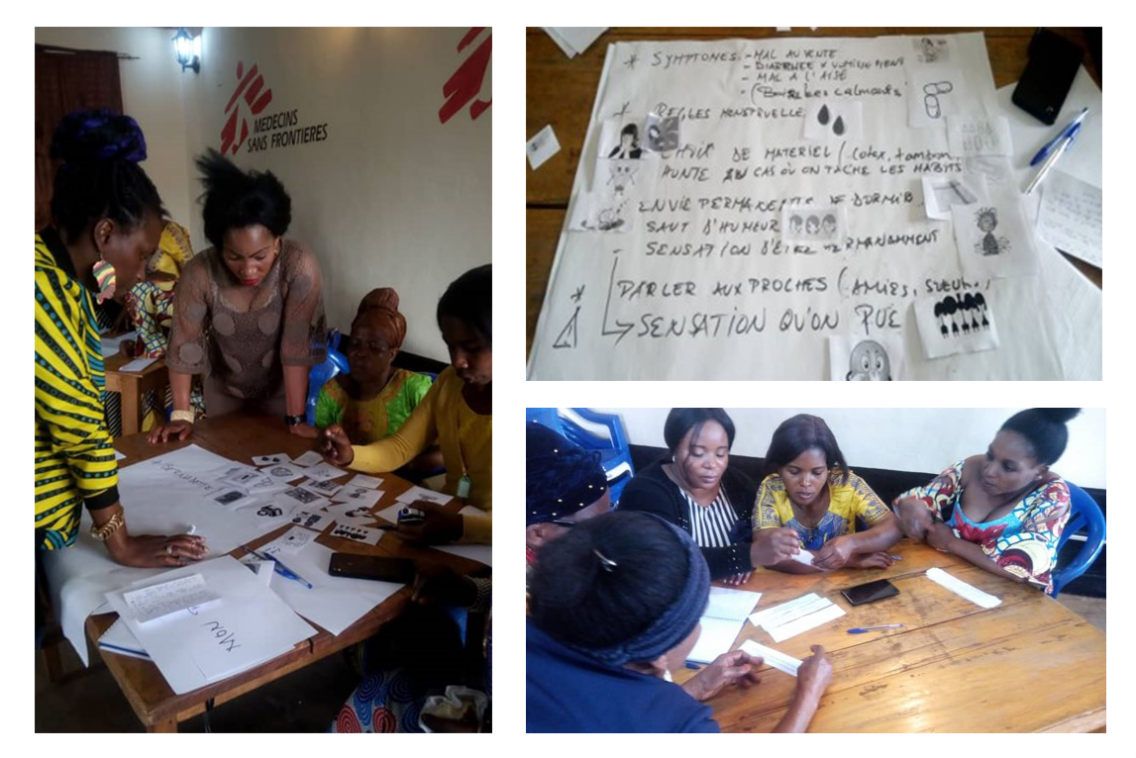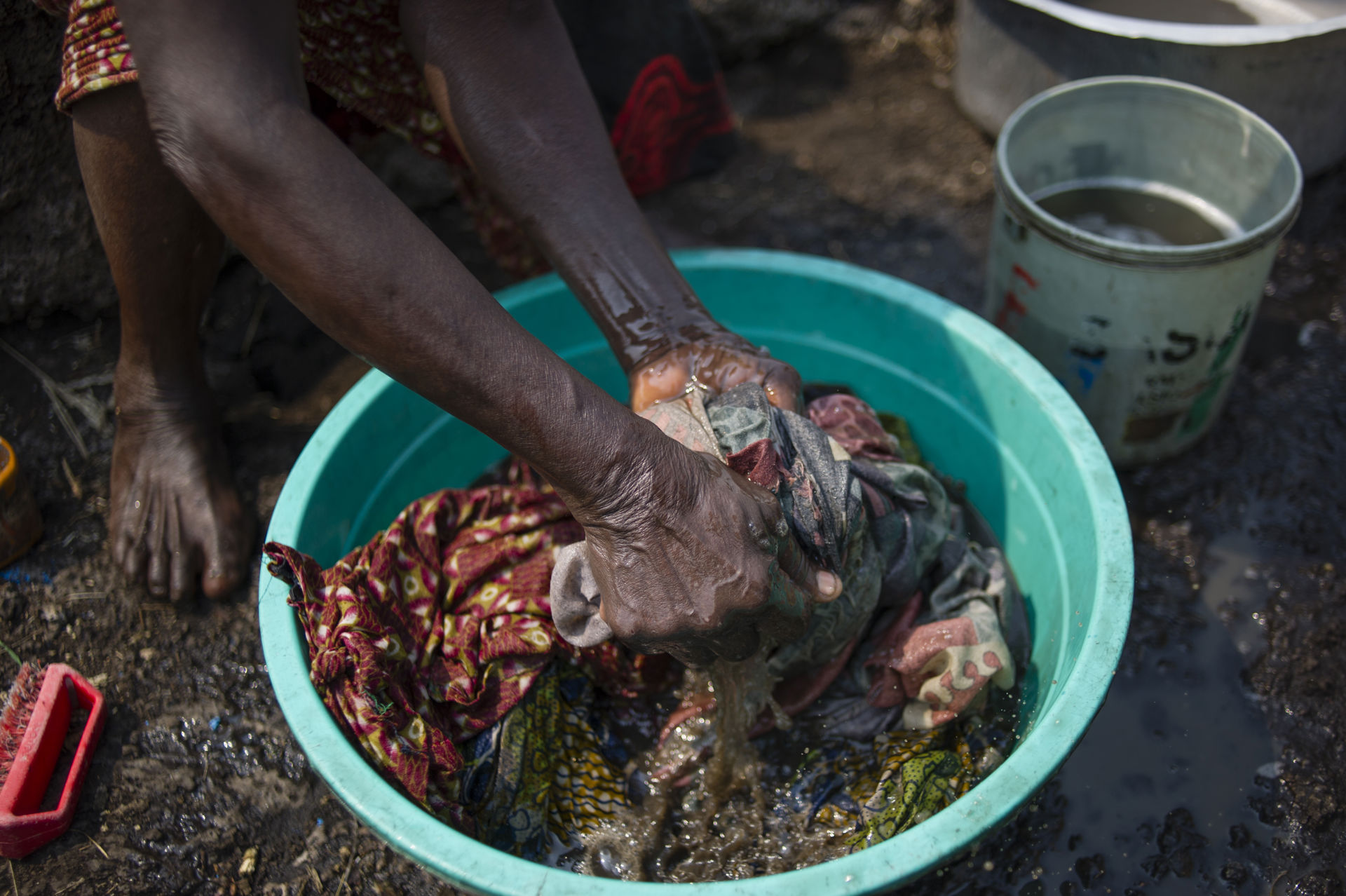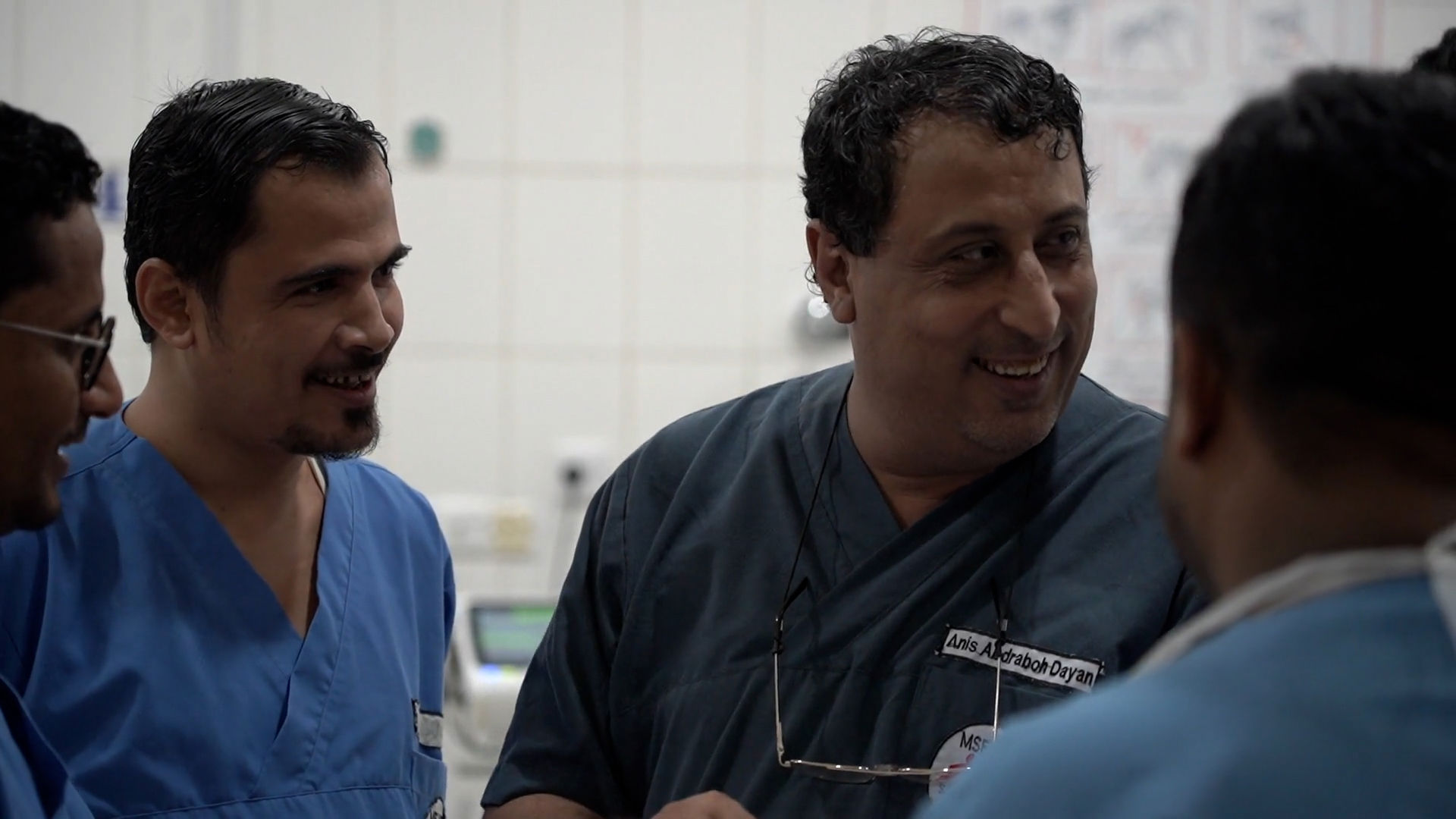Access to good menstrual hygiene is key to women’s health and wellbeing. But too often in humanitarian crises, their needs go unmet. Can an innovative approach find a culturally appropriate solution to this problem? As part of International Menstrual Hygiene Day 2021, Chiara Domenichini introduces a new project that’s aiming to find out…
I have been working for MSF since 2013, first as a nurse and later as a medical coordinator, mostly in places that don’t have a lot of resources or infrastructure. One thing all female MSF staff know is that managing your own menstrual hygiene is not always easy.
In many of the contexts we work, products for menstruation can be scarce or completely absent, so when packing my bags for my early assignments, pads were the one thing taking most of the space in my luggage. Lack of latrines, poor hygiene conditions, lack of water supply and privacy complicates things even further, particularly while on the move.
Recently, however, I’ve found something that works better for me: period underwear, washable, durable underwear capable of absorbing the menstrual flow without the need for any other products.
While on assignment in the province of South Kivu, in the Democratic Republic of Congo (DRC), I shared with a female colleague my personal experience using period underwear.
From that first conversation, we started wondering: could this work in a rural setting for women who have been displaced, who face many more challenges than we do? That conversation is how this journey started.
The context
People in DRC have lived through decades of conflict. When violence erupts, people have few options but to flee, leaving behind their homes and livelihoods, and often find themselves living in temporary camps with little access to basics like clean water, toilets, or medical care.
There are over five million people who have been internally displaced like this in DRC – it’s become the greatest displacement crisis in Africa. Four hundred thousand displaced people live in the province of South Kivu, of whom over 50 percent are women.
Although there has been some work addressing menstrual hygiene during humanitarian interventions, there is a very limited body of evidence on adequate menstrual products in the context of displacement.
Menstrual hygiene is part of reproductive health and as such is a fundamental right and basic need that must be considered. The lack of adequate menstrual products and safe spaces to manage menstrual hygiene can cause women great discomfort and anxiety, which can become stigmatising, leading to shame and fear.
So how do displaced women deal with menstruation? And could period underwear be usefully introduced in the hygiene kits MSF distributes to them in the DRC?
All innovation begins with a question and an idea. To test ours, we decided to apply to the Sapling Nursery, an MSF fund that helps teams pilot new approaches that could change how we work for the better.
The first step
Our Congolese colleagues in the city of Bukavu, in South Kivu, provide technical and administrative support to our projects in the region.
Now we approached the female members of the team with a new request: would they be the first ones to assess the period underwear and actively participate in this project? They received the idea with enthusiasm, and this is how our first pilot began.

The team gets stuck into the first pilot session. Photo Credits: Chiara Domenichini
Something I’ve learned working with MSF is that every context is different. That means that although people living through humanitarian crises might have similar needs which can be met with similar solutions, it’s vital to understand the culture you’re working within in order to frame these solutions in ways that are appropriate.
That’s why we spent a morning together with our colleagues from Bukavu, discussing beliefs and taboos on menstruation, where we get information about it, our first menstruation experiences, and the most common challenges.
We learned that one of the key aspects of menstruation for women in DRC is privacy. In fact, women don’t want anyone, even other women, to know that they are menstruating.
After this session, we distributed the period underwear among our Congolese colleagues, and three months later we got back together to discuss their experience with the product.
The feedback was positive overall. The underwear was comfortable and clean, easy to wear and wash and, most importantly, it tackled the important issue of privacy.
To avoid taking our initial findings for granted, we’ve decided that the next step will be to take this idea to a rural area in South Kivu and run a second pilot with a larger number of participants.
The most important thing for us is that the pilot should have an inclusive process with Congolese women and their opinions are at the centre so that together we can understand whether the menstrual underwear we’re going to be supplying to communities really does improve their quality of life.
To achieve this, we’ve worked together with the MSF Japan Innovation Unit to design community feedback sessions aimed at understanding beliefs, taboos, and challenges of menstruation in this more rural setting.
We’ve also got advice from health promotion and community engagement experts, as well as reproductive health specialists, to structure how the community feedback will be obtained and evaluated.
We soon realised that menstruation is both a sensitive topic and an issue of empowerment, and as such it must be addressed sensitively, by women and for women, so that participants are supported to make the decisions that are right for them.
A lot of work and passion
In the following weeks, we expect a shipment of the period underwear to arrive in Bukavu where it will be distributed across rural communities. Soon, we will be able to continue our journey, learning more about the challenges of menstrual hygiene and devising new solutions and approaches.
Should the feedback from the product be positive, a third phase will look at introducing the product in the hygiene kits MSF distributes to displaced people who wouldn’t otherwise have access to these basic necessities.
Learning about menstrual hygiene management among vulnerable communities is what moves us and finding how to make solutions a reality will be our main challenge. We’re planning on documenting our progress regularly through our blog, and we hope you’ll join us on this journey.



